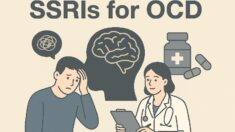
Addiction no longer simply means a weak will. What you see today is the result of a combination of science, understanding, and compassion. This shift has completely transformed the perceptions of patients, families, and society. In this article, you’ll read seven significant changes that are giving new meaning to addiction treatment and rehabilitation. Each point will reveal a story of the hope and challenges that impact the lives of thousands of people every day.
1. Integrated Dual Diagnosis Support
Addiction is often accompanied by mental health issues such as depression, anxiety, or past trauma. Today’s programs attempt to address both issues together. This integrated approach helps provide a holistic understanding of the underlying causes of the illness. When you receive treatment for both problems in one place, confusion is reduced and treatment flows smoothly. This is a relief for families because integrated care provides assurance that the root cause is being addressed, not just the symptoms.
2. Medication-Assisted Treatment (MAT)
Some medications reduce cravings and ease withdrawal symptoms. When these medications are combined with therapy, the chances of recovery increase. This also helps build trust, as the person experiences improvement more quickly. Medications should always be used under medical supervision to avoid side effects or misuse. The right medication and the right timing contribute to stability.
3. Personalized Treatment Plans
Treatment planning is no longer a standard procedure. Every patient’s story is unique, so tailoring treatment to your needs is essential. Treatment involves developing a comprehensive plan that combines medication, therapy, family support, and lifestyle modifications. This personalized approach reassures you that you’re not just a name or a number. Adapting interventions tailored to a patient’s needs and circumstances often boosts hope and restores self-confidence. Centers such as Castle Health Addiction Treatment Services tailor every stage of care to help people regain control and confidence in a way that works best for them.
4. Cognitive Behavioral Therapy (CBT) and Other Evidence-Based Therapies
Changing thoughts and behaviors is key to a long-term path to health. CBT teaches you what thoughts and situations trigger addiction and how to change them. Other proven methods, such as DBT and motivational interviewing, also inspire positive change. As you learn new skills, it becomes easier to handle challenges in daily life. Gradually, old patterns break down, and new, empowering choices emerge.
5. Holistic Healing and Mindfulness
Treating the whole person is gaining greater importance today. Yoga, meditation, art therapy, mindfulness, nd physical activity are not only helpful but also provide self-understanding and balance. Feeling the connection between your body and mind increases emotional stability. These methods help reduce stress, boost self-esteem, and reduce the risk of relapse. This part of the treatment often helps people rediscover meaning and joy in life.
6. Technology and Virtual Support
Digital tools have brought treatment and support closer to home. Online counseling, recovery apps, and virtual support groups allow you to connect even when it’s difficult to go out. These features maintain continuity and provide support during unexpected crises. Technology has reduced the barrier of distance and embarrassment. The key is to ensure that online resources are reliable and connected to certified professional supervision.
7. Family and Community Involvement
Addiction is no longer a problem for one person. Family and community support are crucial in recovery. Family therapy and community programs strengthen relationships and reduce feelings of shame. When you and your family receive education and support, understanding increases and cooperation becomes easier. Building awareness and supportive networks at the community level rebuilds broken trust and provides long-term support.
New Hope and Challenges
Modern treatments have made understanding addiction central to treatment and have also raised expectations. However, not every path is easy. Social stigma, access to treatment, and financial barriers still pose significant challenges for many families. Knowledge, patience, and support are essential as you search for a path. Even small steps matter, and every success is important to celebrate.
Today’s treatments demonstrate that recovery is possible and practical. When you combine personalized plans, integrated mental health care, appropriate medication use, scientific therapies, holistic treatments, digital support, and family involvement, results are lasting. With hope and compassion, every step counts. If you or someone you know is on this journey, know that you don’t have to be alone, and there are many ways to help.


